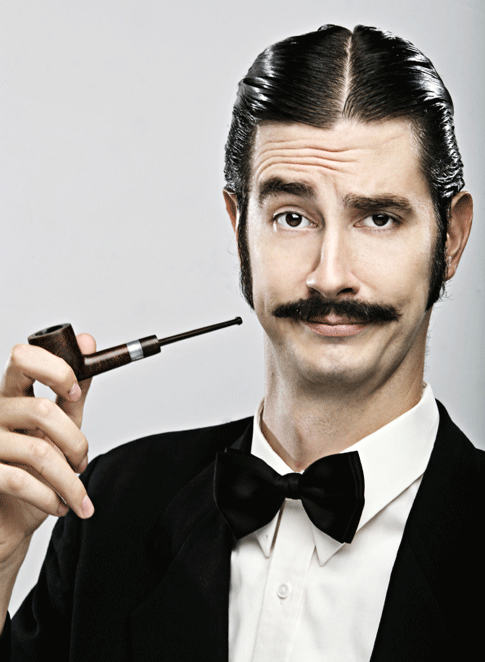As a rule, being accused of being
pretentious is seen as an attack on one’s personality. Being high-minded is,
according to society’s rules of common decency, an undesirable trait. Not so,
say I. Pretentiousness, contrary to what others may tell you, is an excellent
defence mechanism against the tedious, unimaginative, exceedingly mediocre
world.
In this era of political
correctness and egalitarianism, one has to struggle harder to raise oneself
above the grey masses. “Why struggle at all?” you ask. Nietzsche says: “You
should build beyond yourself, but first you must be built yourself,
square-built in body and soul. You should propagate yourself not only forward,
but upward” (95). The poet-philosopher knows that every man has the tendency to
slack and take up a comfortable position next to millions of others like him.
He is inclined to mediocrity, false modesty, and mendacity.
If he does not challenge himself
(and others), he will sink into the marsh of insignificance. Pretentiousness,
then, is the one “virtue” that will elevate him above the average and the
complacent. It is a form of self-defence, an antidote to the self-righteous
minds that insist all men are “equal.”
For without pretentious men, the
grey masses will never see their true reflection: ordinariness. They will wade
through this muck called life thinking who they are is good enough. This needs
to be rectified, and it can only be done through a figure unafraid of upholding
excellence, of judging the inferior and being judged in return for being
inferior, of vertiginous high-mindedness and grandiloquence. Such a figure will
come to our rescue, to save us from being crushed flat by the insistence that
we are all equal. For there is no such thing as equality for all in
intellectual matters: "I do not want to be confused with
these preachers of equality, nor taken for one of them. For justice speaks thus
to me: “Men are not equal.” And they should not become so, either! For what
were my love of the Superman if I spoke otherwise?" (124)
Nietzsche, Friedrich. Thus Spoke Zarathustra. London: Penguin Books, 2003

Comments
Post a Comment
Comments are always appreciated! Do feel free to leave them or start a discussion.